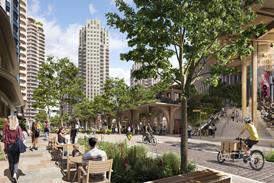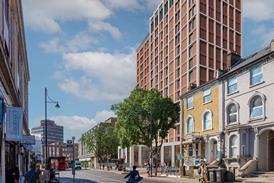Research by the University of Manchester looked into how architects make decisions on projects
Architects often take shortcuts by copying previous designs and rely too much on others to handle complex tasks without double-checking, a new study has found.
Research carried out by the University of Manchester found architects often rely on their instincts when deciding which information to use and how to solve design problems.
It comes two weeks after the publication of the final Grenfell Inquiry report, which found a similar approach was taken at the London tower block which caught fire in 2017, resulting in 72 deaths.

Researchers Diana Osmólska and Alan Lewis looked at how architects make decisions, finding they can sometimes make mistakes without realising it by using what worked in previous projects without checking if it is still the best approach.
> Also read: Arb seeking feedback on proposed post-Grenfell code of conduct
Instead of carefully analysing a new problem, the study found architects may just reuse an old solution, which can be risky.
The Grenfell Tower Inquiry found a similar approach was taken by Studio E, the practice responsible for the design of the building’s flawed refurbishment, which had assumed that cladding panels used on other projects were suitable without checking them properly beforehand.
Another shortcut, according to the study, is “intuitive outsourcing”, which happens when architects rely on other professionals for information and don’t check it themselves.
In the Grenfell Inquiry, it was found that architects trusted subcontractors to provide the right materials without verifying them. This kind of outsourcing can create a false sense of security, making architects wrongly assume they have all the information they need.
Osmólska explained that these shortcuts can make architects overlook important details. “Architects need to pay attention to these shortcuts or quick decisions they make based on instinct,” she said. “They should think more carefully about the information supporting their design decisions and reflect on how they reached a particular decision.
“It’s also important for them to regularly check and review both their own choices and the decisions made by others.”
The researchers are now developing a new framework that will help architects assess their design choices more thoroughly. They plan to test this framework by working with architects to see how it can improve their decision-making in future.
Last week, Arb unveiled its proposals for a new code of conduct for architects informed partly by the findings of the final Grenfell Inquiry report. The regulator has opened a consultation on the draft code, which is based on six basic principles, and will finalise the code in the new year.
















3 Readers' comments